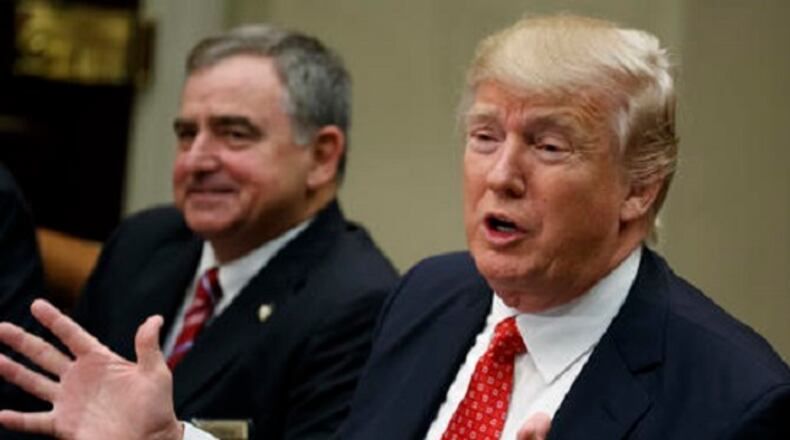Clyde, who may run for Secretary of State, is calling the proposed law the TRUMP Act, for “Tax Returns Uniformly Made Public.”
RELATED: Donald Trump won’t release tax returns before election
“Questions of bribery and conflicts of interest arise when candidates for president and vice president fail to disclose their tax returns,” she told fellow lawmakers this week. “Without these documents, Ohio voters lack critical information on candidates vying to occupy the highest office in the land. Recent public polling indicates that nearly two-thirds of Americans believe presidential candidates should disclose their tax filings.”
The bill is modeled after similar proposals in California, Hawaii, Massachusetts, New Mexico and the District of Columbia — all blue states where Democrat Hillary Clinton won the Electoral College votes in the 2016 presidential election. Arizona, a state won by Republican Donald Trump, is also considering a similar measure.
Individual income tax returns are private and protected from unauthorized release. Still, since the early 1970s, most major presidential candidates have chosen to release them, according to the Presidential Tax History Project, which archives released returns from presidents and major party candidates.
President Donald Trump did not release his returns, initially saying he would do so once an IRS audit is concluded and later said through an aide that he wouldn’t release the returns.
RELATED: Trump insists he is not releasing tax returns
In a Jan. 11 press conference, the president said only the press — not the public — wants him to release his tax returns. But polling released Jan. 10 by Pew Research Center shows 57 percent of Americans are concerned about Trump’s relationships with organizations, businesses or foreign governments and 60 percent say the president has a responsibility to release his tax returns.
Tax returns offer a view into charitable giving, tax rates, investments and personal and business interests. Ethics experts say the returns would provide valuable information in determining whether the president has any potential conflicts of interest.
Ohio Gov. John Kasich refused to release his returns while running for governor in 2010 and 2014, except for allowing reporters to look at but not copy his 2008 filing. Kasich did release seven years of federal income tax returns during the GOP presidential campaign in 2016.
Clyde said the bill has yet to get any Republican co-sponsors.
RELATED POLITICAL CONTENT:
About the Author

